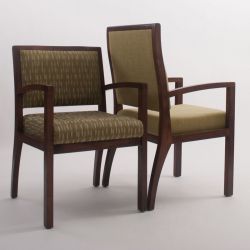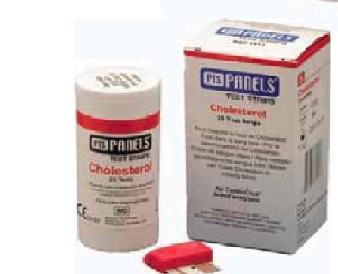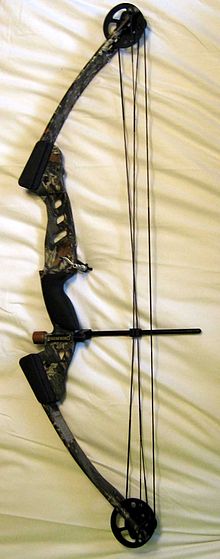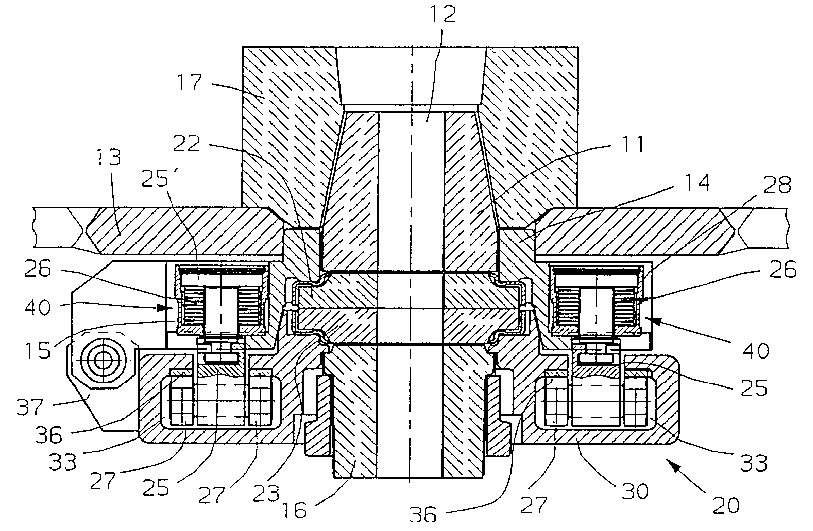
Indianapolis, Indiana – Indiana patent attorneys for Kimball International, Inc. of Jasper, Indiana commenced intellectual property litigation in the Southern District of Indiana alleging that NWN, Inc., d/b/a Westin-Nielsen, infringed Design Patent Nos. D654,718 for a “Side Chair” and D665,188, also for a “Side Chair.” These design patents have been issued by the U.S. Patent Office.
Kimball, a furniture design and manufacturing company that has operated for over four decades, asserts that Westin-Nielsen’s “Cascade” line of chairs infringes Kimball’s intellectual property rights in two design patents. The Cascade line of chairs, named after the Cascade River in northern Minnesota, is designed for plus-sized seating.
At issue in this design patent litigation are United States Design Patent Nos. D654,718 (the “‘718 Patent”) and D665,188 (the “‘188 Patent”). Westin-Nielsen is accused of infringing these patented designs, either directly or contributorily, by making, using, selling, offering for sale, or supplying products such as Westin-Nielsen’s Cascade line of chairs. Kimball asserts that Westin-Nielsen will continue to do so unless enjoined.
The complaint, filed by Indiana patent lawyers for Kimball, lists the following counts:
• Infringement of United States Design Patent No. D654,718
• Infringement of United States Design Patent No. D665,188
Kimball asks that the court:
• Adjudge that NWN has infringed the ‘718 and ‘188 Patents in violation of 35 U.S.C. § 271;
• Issue preliminary and permanent injunctive relief prohibiting NWN and its agents from infringing the ‘718 and ‘188 Patents pursuant to 35 U.S.C. § 283;
• Award Kimball damages for patent infringement, and prejudgment interest and costs against NWN pursuant to 35 U.S.C. § 284;
• Adjudge that NWN’s infringement of the ‘718 and ‘188 Patents has been deliberate, willful, and wanton;
• Adjudge that NWN’s infringement of the ‘718 and ‘188 Patents has been exceptional under 35 U.S.C. § 285;
• Treble the damage award under 35 U.S.C. § 284;
• Award Kimball its reasonable attorneys’ fees under 35 U.S.C. § 285; and
• Award Kimball the total profits received or derived by NWN from the manufacture, marketing, sale, offering for sale, and/or distribution of products bearing or using any copy or colorable imitation of the ‘718 and ‘188 Patents pursuant to 35 U.S.C. § 289.
Practice Tip: The U.S. Supreme Court ruled this year that a trial court may award attorneys’ fees in case of patent infringement litigation that it deems “exceptional.” These Supreme Court rulings revisiting how “exceptional” is defined may benefit any company which is the target of a questionable patent infringement lawsuit, as trial judges will now have greater latitude to award attorneys’ fees in those cases in which they determine that the conduct of the losing party “stands out from others.”
 Indiana Intellectual Property Law News
Indiana Intellectual Property Law News





 Vincent P. Tippmann Sr. Family, LLC (“Tippmann Family, LLC”) claims ownership of the patent-in-suit, a technology that facilitates rapid and efficient freezing and thawing of food products. It also indicates that it is the inventing and owning company of various patents and patent applications related to apparatuses and methods for blast freezing and/or thawing of products.
Vincent P. Tippmann Sr. Family, LLC (“Tippmann Family, LLC”) claims ownership of the patent-in-suit, a technology that facilitates rapid and efficient freezing and thawing of food products. It also indicates that it is the inventing and owning company of various patents and patent applications related to apparatuses and methods for blast freezing and/or thawing of products.
 Hünenberg, Switzerland sued in the
Hünenberg, Switzerland sued in the  unidentified Defendants, while the third lists 16 new Defendants. The Doe Defendants are accused of infringing the copyright of the motion picture “
unidentified Defendants, while the third lists 16 new Defendants. The Doe Defendants are accused of infringing the copyright of the motion picture “ Texas sued in the
Texas sued in the